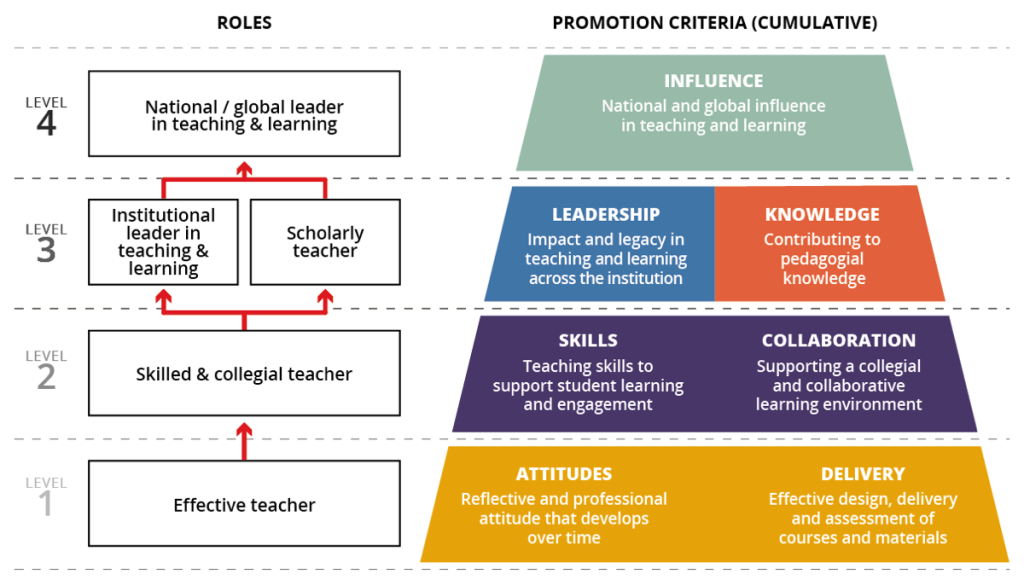In March 2023, we presented an interim report to the project steering group. The report covers five main areas:
- A report on consultation with faculties and pedagogical units about existing practices and systems, including a proposal for future development
- A review of current practices in the university
- A review of practices on career development and pedagogical merit nationally and internationally
- Proposal for a university-wide framework to recognize pedagogical merit
- Proposals for phase 2 of the project
In a previous post, we summarised the hopes and expectations suggested by colleagues across the university. We have reviewed Lund University regulations and practices, and found that they already provide strong support for equal consideration of research and teaching in academic appointments and promotions, exactly as expected from the Higher Education Ordinance. LU’s current arrangements look for a balance of knowledge and skills which we think reflects a desire to have parity of esteem between teachers with the same job title and acknowledgement of the fact that teachers’ balance of effort, development and impact may develop during their careers, and our discussions with stakeholders show that this is something people want to preserve. This means that there is no need for regulatory changes to achieve these hopes and expectations, but rather that we need to provide stronger support and education to ensure that teaching competence and leadership can be recognised as clearly as research competence and leadership. This is our focus for the rest of our project.
A review of the national and international landscape in this area shows that many, if not most, universities are also revising their appointment and merit frameworks to make the teaching requirements clearer. Many of our colleagues in the Universitas 21 (U21) and League of European Research Universities (LERU) partnerships have generously shared their work in this area with us. We took a close look at the Career Framework for University Teaching (Figure 1), which was developed by the Royal Academy of Engineering in the UK in partnership with a group of international universities It is a model which can be mapped to the expectations of the existing LU faculty Academies, and there are many good international examples of its implementation. Several of the U21 and LERU universities have adopted a version of the Framework, and some were also involved in its development. We think this gives us a good basis for an LU framework, and we will return to this in a later post.

If you would like to know more or have ideas or examples to contribute to the project, please get in touch with us.
